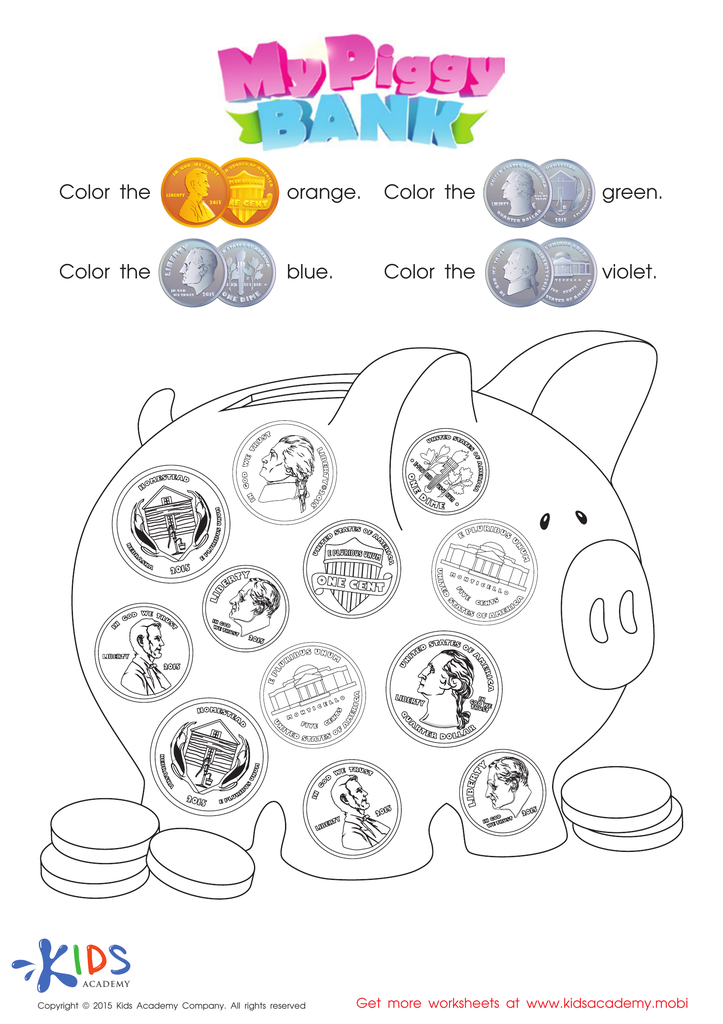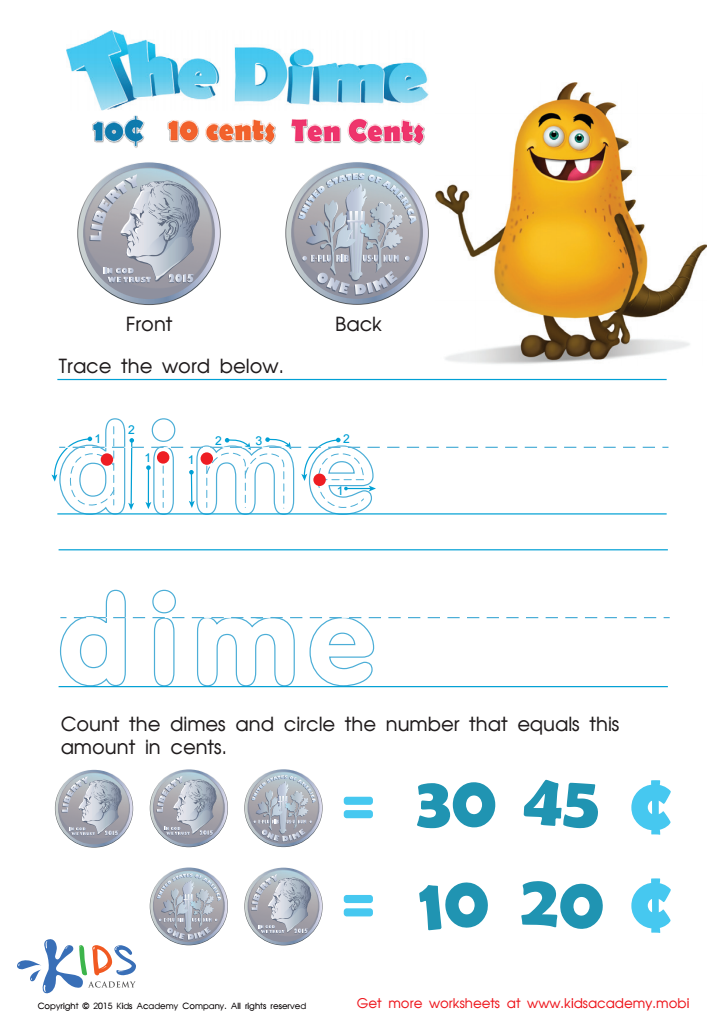Counting money Math Worksheets
3 filtered results
-
From - To
Welcome to our Counting Money Math Worksheets page! Designed for early learners, these engaging worksheets help children develop essential money management skills while enhancing their math abilities. Our resources feature a variety of fun activities, including identifying coins, counting cash, and making change. With colorful illustrations and intuitive exercises, students will enjoy hands-on practice that fosters confidence and competence in handling real-life money situations. Perfect for classroom use or at-home learning, our Counting Money Math Worksheets are designed to support young learners as they master the basics of financial literacy. Explore our worksheets today and watch your child excel in math!


Recognizing Money Money Worksheet


Ten Cents or the Dime Money Worksheet
Counting money is a vital mathematical skill that extends beyond the classroom, laying a foundation for responsible financial behaviors in children. Parents and teachers should care about teaching this skill for several reasons.
Firstly, it fosters practical life skills; understanding how to count, add, and give change builds confidence in everyday transactions. It helps children grasp the concept of value and budgeting, essential for making informed decisions in the future.
Secondly, counting money enhances cognitive development. It engages children's problem-solving abilities and strengthens their numerical fluency. As they handle real or play money, they practice arithmetic operations in a hands-on way, which can improve their overall mathematical proficiency.
Moreover, instilling a sense of responsibility regarding finances at an early age can combat unhealthy spending habits later in life. Children who learn to manage money appropriately grow into adults capable of making sound financial choices.
Lastly, discussing money can provoke important conversations about earning, saving, and sharing, which are crucial for building social and emotional intelligence. By integrating money counting into their curriculum, teachers and parents can provide children with enriching experiences that foster both mathematical and life skills.

 Assign to My Students
Assign to My Students
















